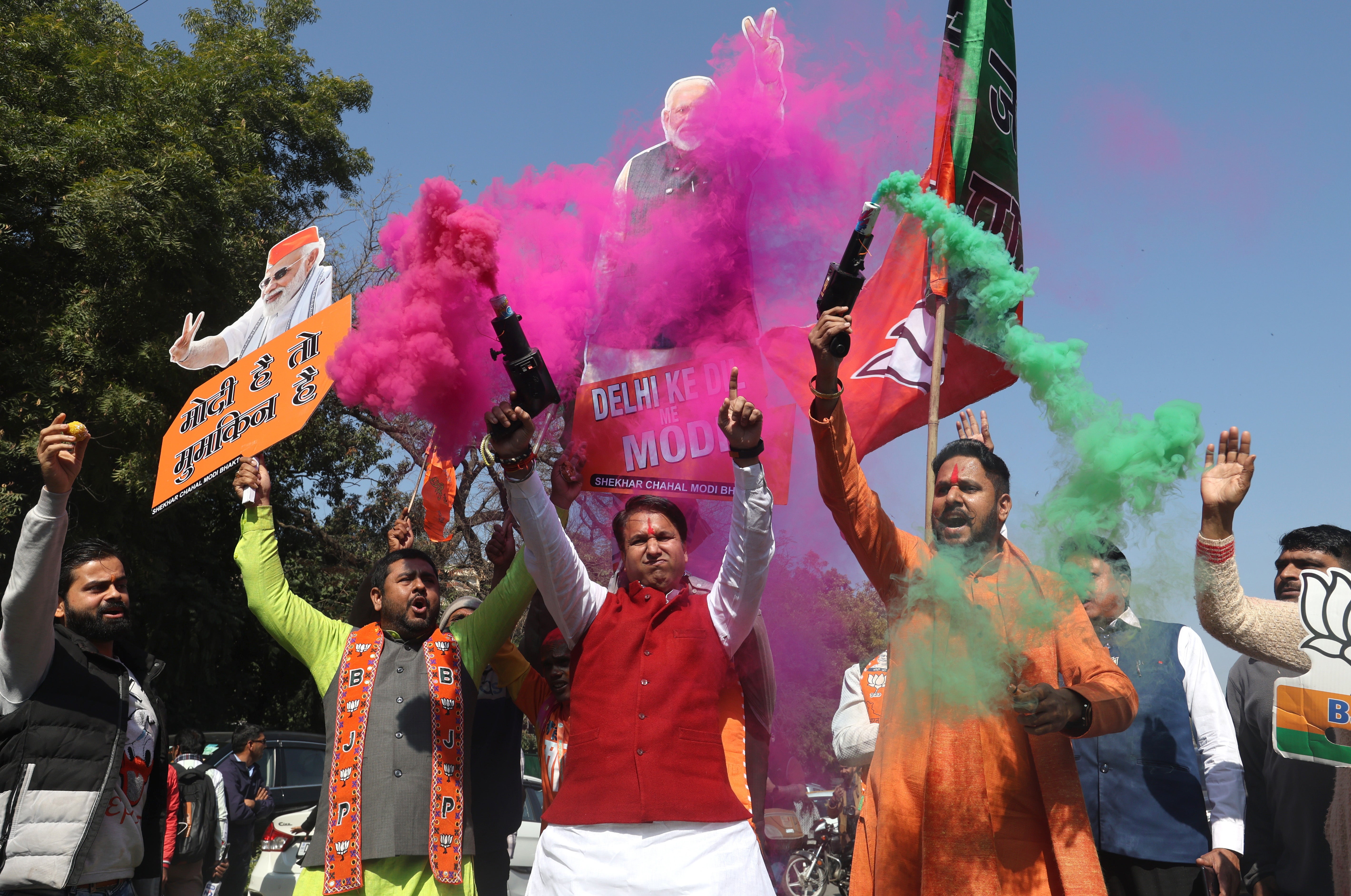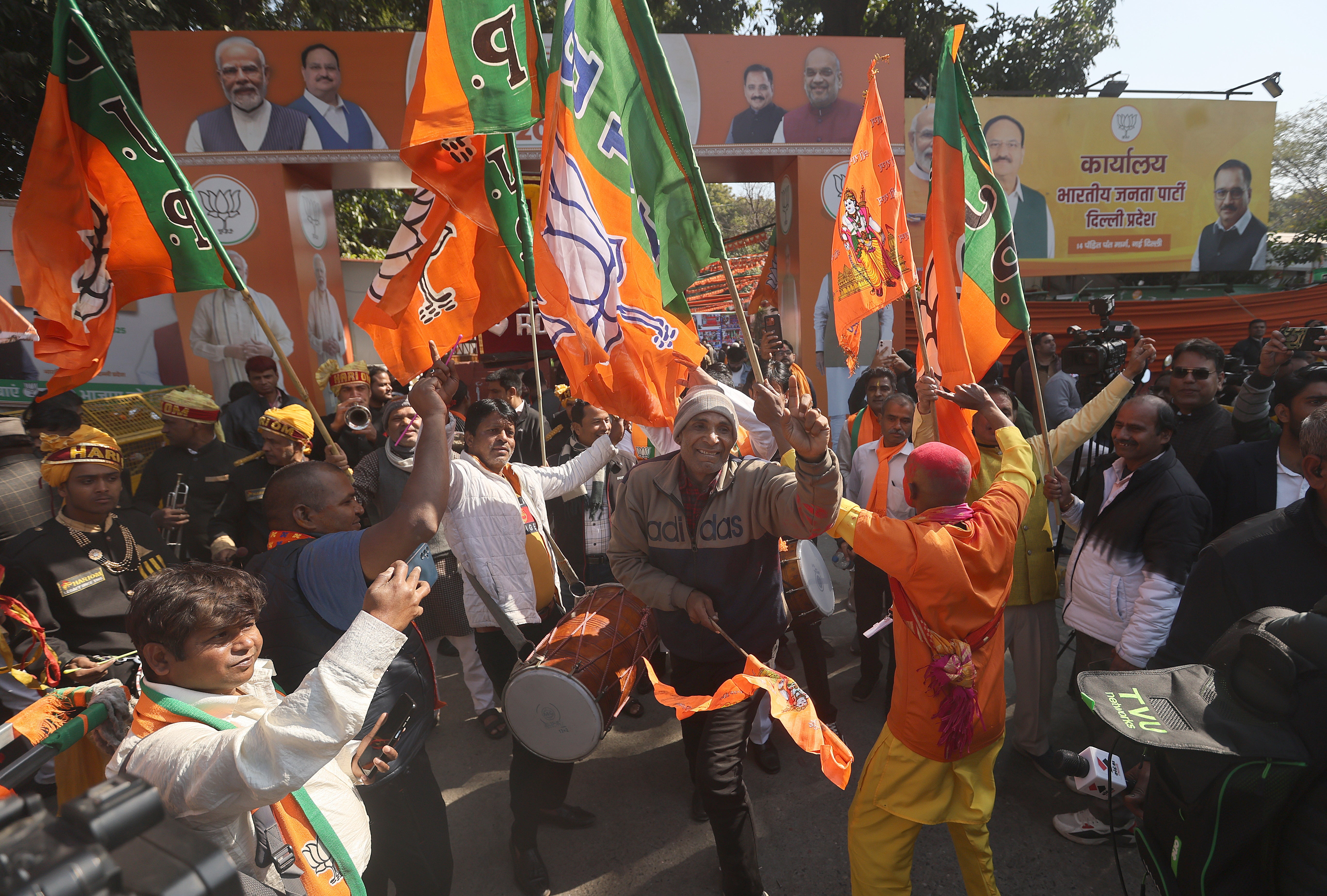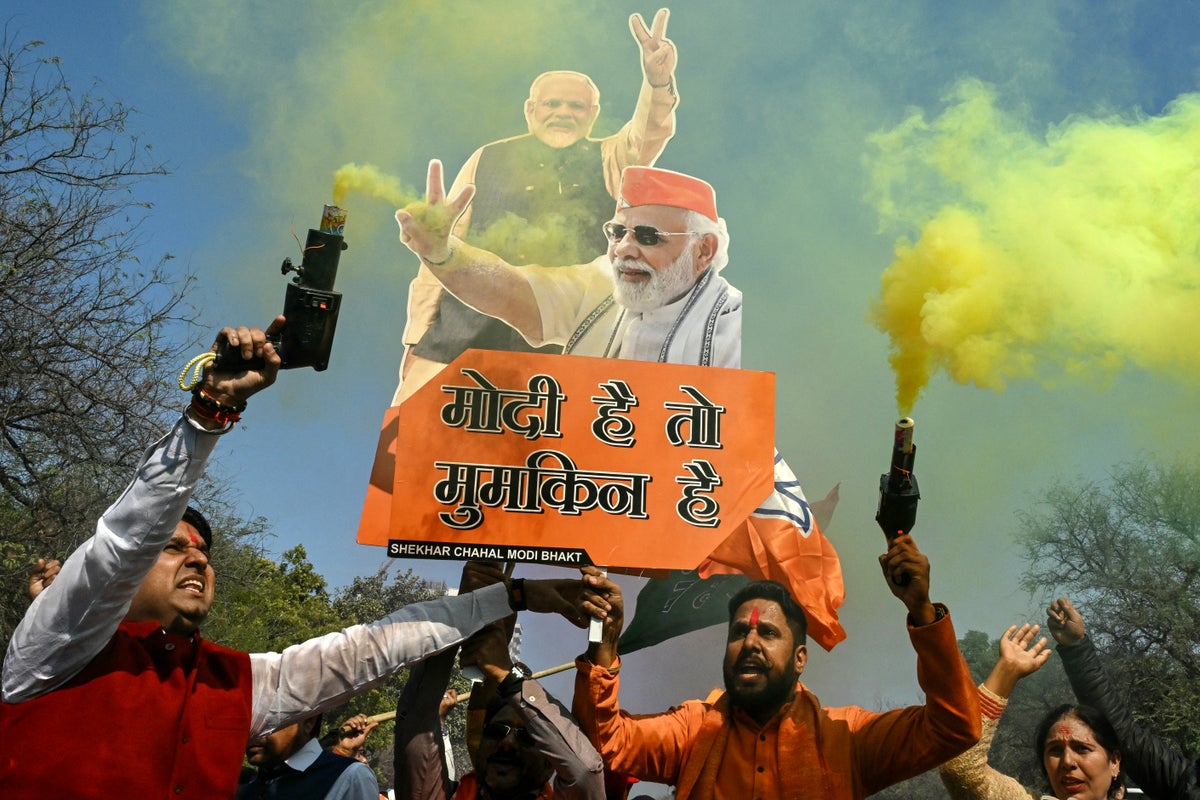Indian prime minister Narendra Modi’s Hindu nationalist Bhartiya Janata Party is on course to win the Delhi assembly elections, making a comeback in the national capital after 27 years.
By Saturday afternoon, the BJP was maintaining a lead in 48 seats, while the incumbent Aam Aadmi Party (AAP) party was trailing behind with a lead in 23 seats in the 70-member legislative assembly, according to data from the Election Commission of India (EC).
A party needs to cross the halfway mark of 36 seats to form a government.
As votes were still being counted, two-time Delhi chief minister Arvind Kejriwal conceded defeat and said his party would play the role of a constructive opposition
“Today, the results of the Delhi elections have been announced, and we humbly accept the people’s verdict. The decision of the people is paramount, and we respect it,” Mr Kejriwal said.
“I congratulate the BJP on this victory and hope that they will fulfill the expectations and aspirations of the people who have given them the mandate.”

He added: “We did not come into politics for power; we see politics as a medium to serve the people, and we will continue to do so.”
Mr Kejriwal lost the important New Delhi seat to BJP candidate Parvesh Verma by 4,089 votes.
Other prominent AAP leaders, such as Manish Sisodia, lost in his Jangpura constituency, while Saurabh Bhardwaj lost Greater Kailash to the BJP. Chief minister Atishi narrowly won the Kalkaji constituency.
The national capital Delhi, a city of over 30 million people, is a federal territory that Mr Modi’s party has not won since 1998, despite having a sizable support base there.
The AAP, a much smaller and newer political party founded by Mr Kejriwal, has administered the state since 2015 and was seeking a third consecutive term.
-office-as-the-party-trails-in-Delhi-st.jpeg)
The party, however, suffered several setbacks during its decade in power, as several of its top politicians were either jailed or investigated on corruption charges, which they denied as politically motivated.
Mr Kejriwal was forced to resign as chief minister last year after being jailed on corruption charges. He is currently out on bail.
The election was seen as a test for Mr Modi and his BJP, which lost its majority in last year’s national election, forcing it to form a coalition government.
It was particularly important for the BJP as it sought to regain some ground, and a victory would mark its third consecutive win after securing victories in the northern state of Haryana and the western state of Maharashtra.
Congress, the main opposition party at the national level which ran the capital for 15 years, was also in the contest but is unlikely to secure even a single seat.

The celebration began early at the BJP headquarters on Barakhamba road in Delhi.
Videos showed supporters and party workers wearing saffron, flurrying the party flag to the beats of bands and drums. They raised slogans of “Modi, Modi” as firecrackers were set off.
The elections were held as Delhi faced its annual winter catastrophe of persistent air pollution, a major problem for millions throughout much of the year. The BJP also targeted the AAP during election campaigning for failing to fulfil its promise of cleaning the Yamuna River.
However, these issues did not get enough attention, as both parties focused on promises of free services, including healthcare and electricity, along with a monthly stipend of over Rs 2,000 (£18.53) for poor women.
Over 60 per cent of eligible voters participated in the election this time.
The potential loss would be a major upset for the AAP, which was founded in 2012 by Mr Kejriwal, the bureaucrat-turned-anti-corruption crusader.
The party emerged from an anti-corruption movement against the Congress party’s governance in the capital and first came to power in 2013. It then secured a landslide victory in 2015, upending the capital’s political system, which had long been dominated by the Congress and the BJP.
The party campaigned on the promise of combating corruption and enhancing civic amenities for the common man. It secured a decisive victory in the 2020 elections, winning 62 out of 70 assembly seats, while Mr Modi’s party managed only eight.
A loss for AAP in Delhi —its strongest base— has raised questions over the future of the party which has been trying to expand beyond Delhi but has struggled to make inroads in other states other than Punjab.




